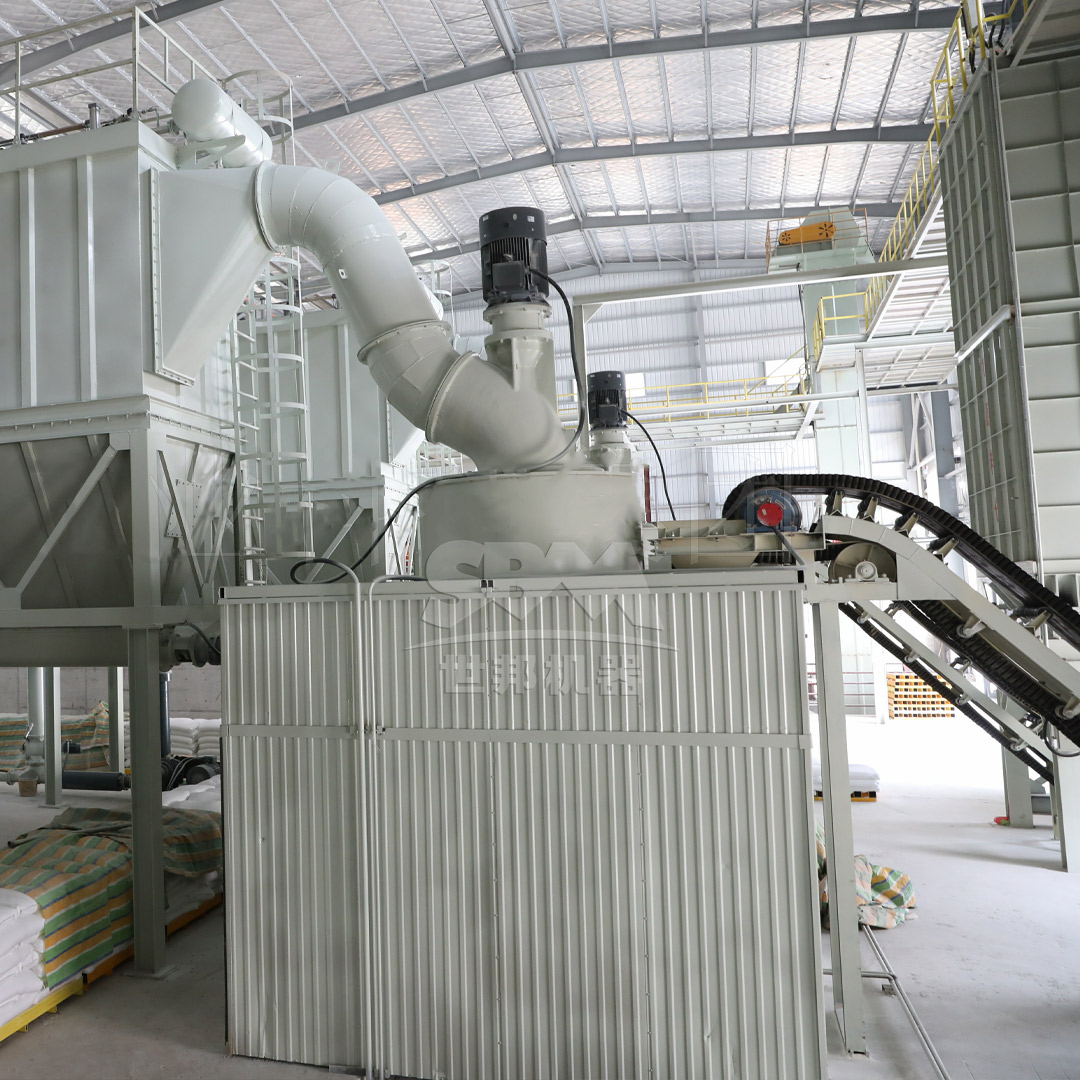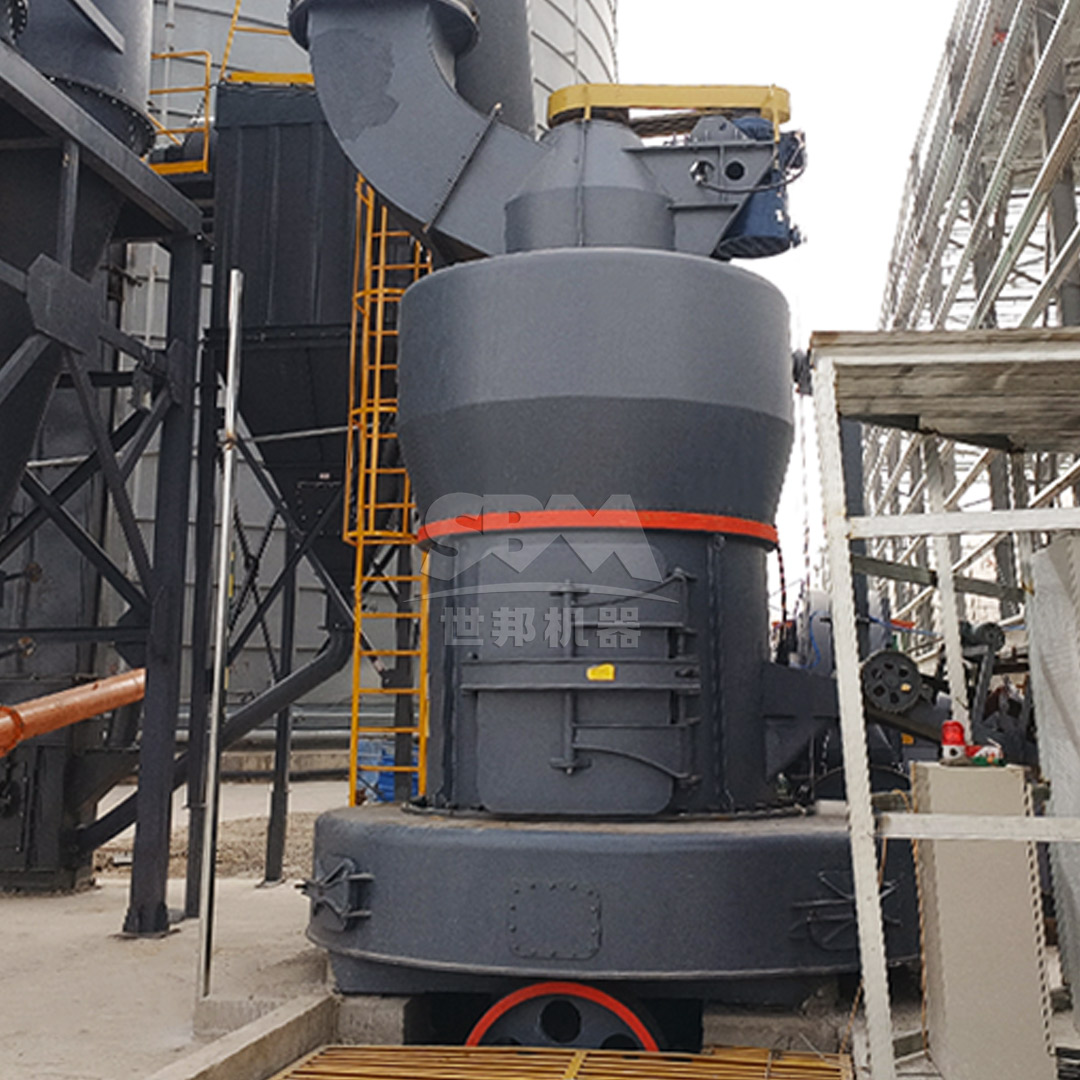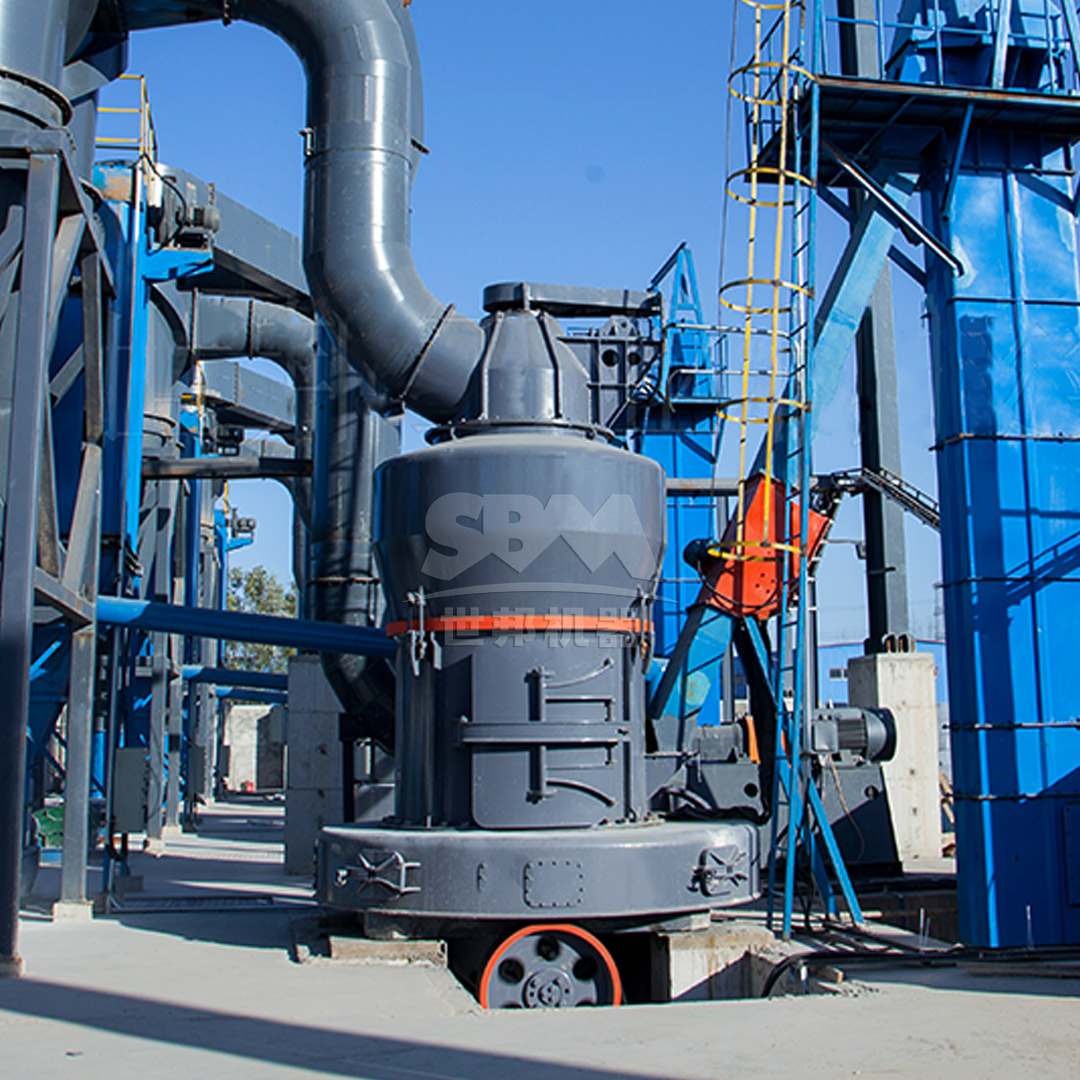Gypsum powder, a versatile material derived from calcium sulfate dihydrate, plays a critical role in both industrial and agricultural sectors. In construction, it is used for plasterboards, cement retarders, and decorative elements, while in agriculture, it serves as a soil conditioner and fertilizer additive. The production of high-quality gypsum powder relies heavily on advanced milling systems that ensure precise particle size distribution, energy efficiency, and environmental compliance. This article explores the key technologies and equipment essential for modern gypsum processing, with a focus on optimizing efficiency and output quality.
The production line typically involves several stages: crushing, grinding, calcining, and packaging. Initially, raw gypsum ore is crushed to a manageable size (e.g., ≤20mm) using primary crushers like jaw or hammer crushers. The crushed material is then fed into milling systems for fine grinding, where achieving the desired fineness (e.g., 45-2500 mesh) is crucial for end-use applications. Calcination follows, transforming gypsum into hemihydrate or anhydrite forms through controlled heating. Finally, the powder is collected, classified, and packaged. Efficient milling is the core of this process, directly impacting product quality and operational costs.
Milling efficiency determines the energy consumption, output consistency, and environmental footprint of the production line. Advanced mills reduce energy use by up to 40% compared to traditional systems, while ensuring uniform particle size distribution. This is particularly vital for agricultural gypsum, where fine particles enhance solubility and soil penetration, and for industrial grades, where consistency affects strength and setting time in construction materials.
Modern gypsum milling employs various technologies, each suited to specific fineness and capacity requirements. Key systems include ultrafine mills for high-precision applications, trapezium mills for medium to fine grinding, and vertical roller mills for large-scale production. These systems integrate features like automated control, wear-resistant materials, and eco-friendly designs to meet industrial demands.
For applications requiring very fine gypsum powder (e.g., 325-2500 mesh), ultrafine mills are ideal. These mills use multi-layer grinding rings and high-precision classifiers to achieve particle sizes as low as 5μm. They offer advantages such as low energy consumption, minimal noise, and high automation, making them suitable for high-value products like specialty plasters and advanced agricultural amendments.
Trapezium mills and similar systems handle medium fineness (e.g., 30-325 mesh) with high capacity. They feature robust designs, such as curved wind passages and combined shovel blades, to reduce wear and improve grinding efficiency. These mills are commonly used for standard construction gypsum and soil conditioners, balancing output and operational costs.
For gypsum producers seeking top-tier fineness and efficiency, the SCM Ultrafine Mill is an excellent choice. This mill delivers output fineness ranging from 325 to 2500 mesh (D97 ≤5μm) with a capacity of 0.5-25 tons per hour, depending on the model. Its key advantages include:
The SCM series operates via a main motor driving multi-layer grinding rings, where material is centrifugally dispersed and progressively ground. Powder collection is efficiently handled by cyclone collectors and pulse dust removal systems. With models like SCM800 to SCM1680, it caters to various production scales, making it ideal for both industrial and agricultural gypsum processing.

For high-capacity gypsum powder production (e.g., 3-250 tons/hour), vertical roller mills (VRMs) offer an integrated solution with crushing, grinding, and classification in a single unit. They reduce footprint by 50% and lower infrastructure costs by up to 40% due to their compact, outdoor-friendly design. VRMs are energy-efficient, consuming 30-40% less power than ball mills, and feature smart controls for remote operation and real-time monitoring.
In a VRM, the main motor drives a grinding plate via a reducer. Material enters through a central feed and is spread evenly by centrifugal force. Rollers apply pressure to crush the gypsum into a layer, with fine powder carried away by hot air to a classifier, while coarse particles return for regrinding. This closed-loop system ensures high efficiency and minimal waste.
Another robust option for gypsum milling is the MTW Series Trapezium Mill, which handles input sizes up to 50mm and produces fineness from 30 to 325 mesh (0.038mm). With capacities ranging from 3 to 45 tons/hour, it is perfect for medium to large production lines. Its technical strengths include:
The MTW mill works by having a main motor drive rollers that revolve around a central axis while rotating themselves, creating centrifugal force. Shovel blades throw material into the grinding zone for compression-based粉碎, with a分级系统 ensuring precise粒度控制. Models like MTW110 to MTW215G cater to diverse needs, supported by patented technologies such as internal oil lubrication and advanced dust removal.

Modern milling systems prioritize sustainability through features like pulse dust collectors that achieve emissions below 20mg/m³ and noise levels under 80dB. Energy-efficient designs not only reduce carbon footprint but also lower operational costs, with mills like the SCM and MTW series offering quick ROI through savings on power and maintenance. Additionally, automated controls minimize human error and enhance safety, aligning with global environmental standards.
In agriculture, gypsum powder improves soil structure and nutrient availability. Using an efficient mill like the SCM Ultrafine Mill ensures fine, soluble particles that dissolve quickly in soil, enhancing effectiveness. Farmers report increased crop yields and reduced application rates due to the uniform quality achieved through advanced milling.
Selecting the right milling system is paramount for optimizing gypsum powder production. Technologies like the SCM Ultrafine Mill and MTW Series Trapezium Mill provide efficient, reliable solutions tailored to industrial and agricultural needs. By investing in advanced equipment, producers can achieve high-quality output, reduce environmental impact, and enhance profitability. Evaluate your production requirements to choose the best fit for your operation.
